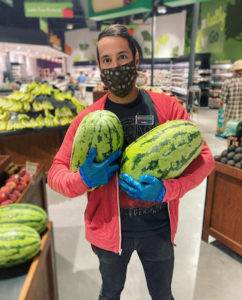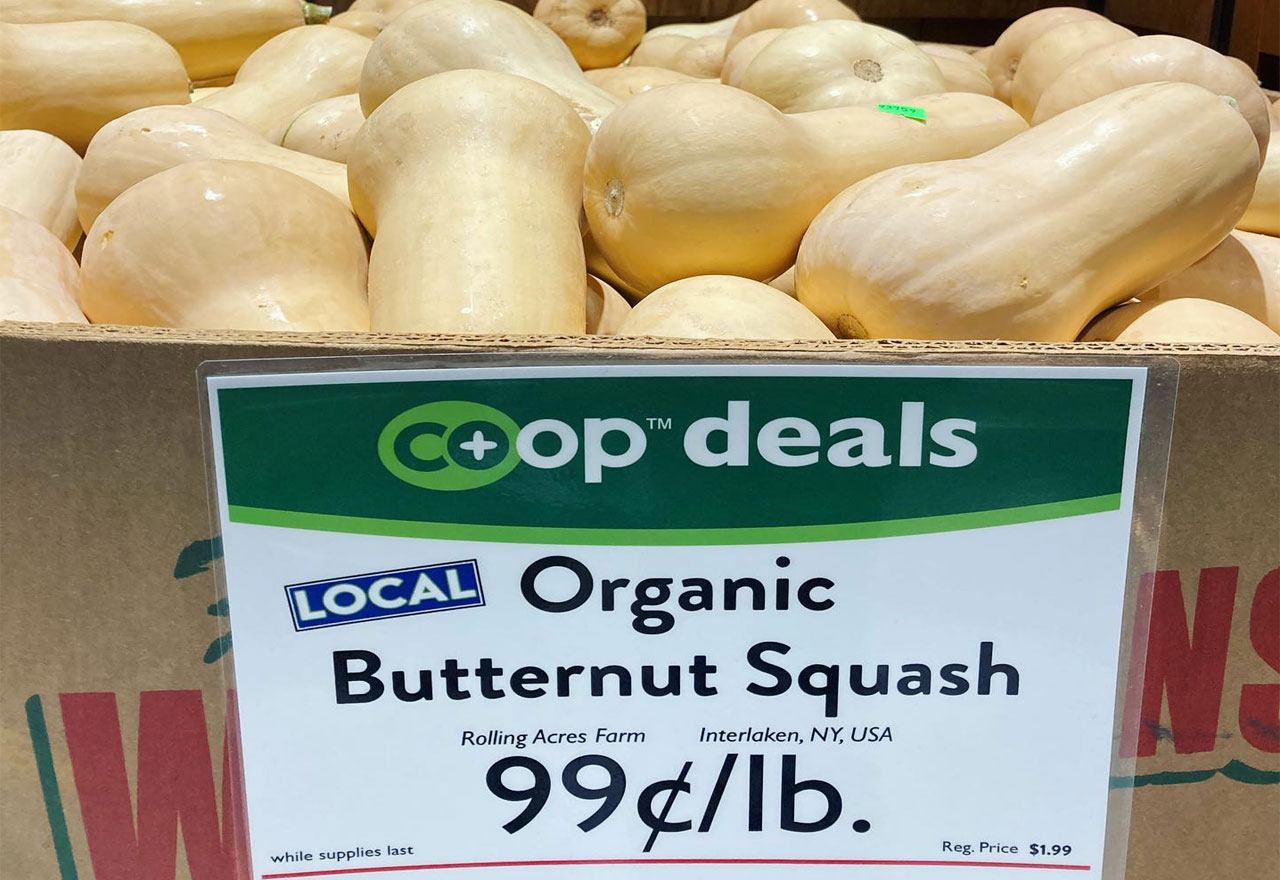Tales from an Upstate New York Produce Department
By Michele Marchetti
In early December, as snow fell steadily on the Finger Lakes, Andrew Hernandez II (right) huddled with eight New York farmers to map out plans for the abundance that, come summer, turned GreenStar’s stores into a backdrop for a photo shoot.
That meeting marked a milestone in GreenStar Food Co-op’s longtime commitment to dignity for the people whose labor produces the food on its shelves, a guiding value reflected in its 2013 attainment of the Food Justice Certification label, the high bar of social justice standards.
Now in his second tenure as produce manager, Hernandez is committed to expanding the co-op’s definition of “fairness” for farmers. Upon returning, he executed a gathering that, for the first time, would get all the farmers in one place.
“Why don’t you have local out there?” one farmer challenged, referring to the co-ops’s foyer, which housed 100 cases of strawberries trucked in from California. Hernandez responded with an explanation of the retail realism of beets, a local veggie prolific enough to fill the bins in late fall, but lacking the star power of strawberries.
The tension transformed into a conversation about how GreenStar could utilize those bulk bins for local produce and how committing to that kind of an order would impact farmers and enable them to come down a bit on price.

As a result, the co-op purchased 400 pounds of organic cauliflower and purple, orange, and white cabbage grown less than a mile away, yielding $1,000 to the farmer in one fell swoop.
Also discussed were trends and transparency in domestic and international markets, and how they could inform pricing of local produce.
This spring when a returning local asparagus farmer inquired about his crop, Hernandez checked what was available to him from his distributors.
Informed by a $5/pound price for asparagus from Mexico, he upped last year’s price paid to the farmer by more than $1/pound. “They have a cider house that’s been closed since COVID, so that was super beneficial to them,” he says.
Hernandez wishes customers had a greater understanding of all that farming entails. A price increase by a local farmer, he says, often boils down to a human just trying to get by. “This is their job—their livelihood.”
His profession affords him an empathy for farmers that can be tough to replicate in a quick trip to the grocery store, when the story of how our food is grown can disappear the moment it hits the shopping cart.
He’s proud of his farmer relationships, yet humbled by the prospect of continuing to support them, while also keeping prices affordable and employees fairly paid. In the “weird swirling chaos of COVID,” maintaining cohesiveness feels like constant catch-up.
He has an eye on the next gathering, when farmers will join once again and undoubtedly unearth monumental challenges and new opportunities for cooperation.


